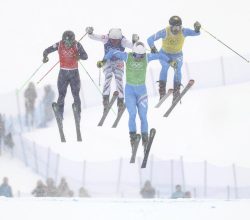Cocona Hiraki Wins Silver in Women’s Park with Difficult Grind; Skateboarding Star Aimed to ‘Perform in My Own Style’
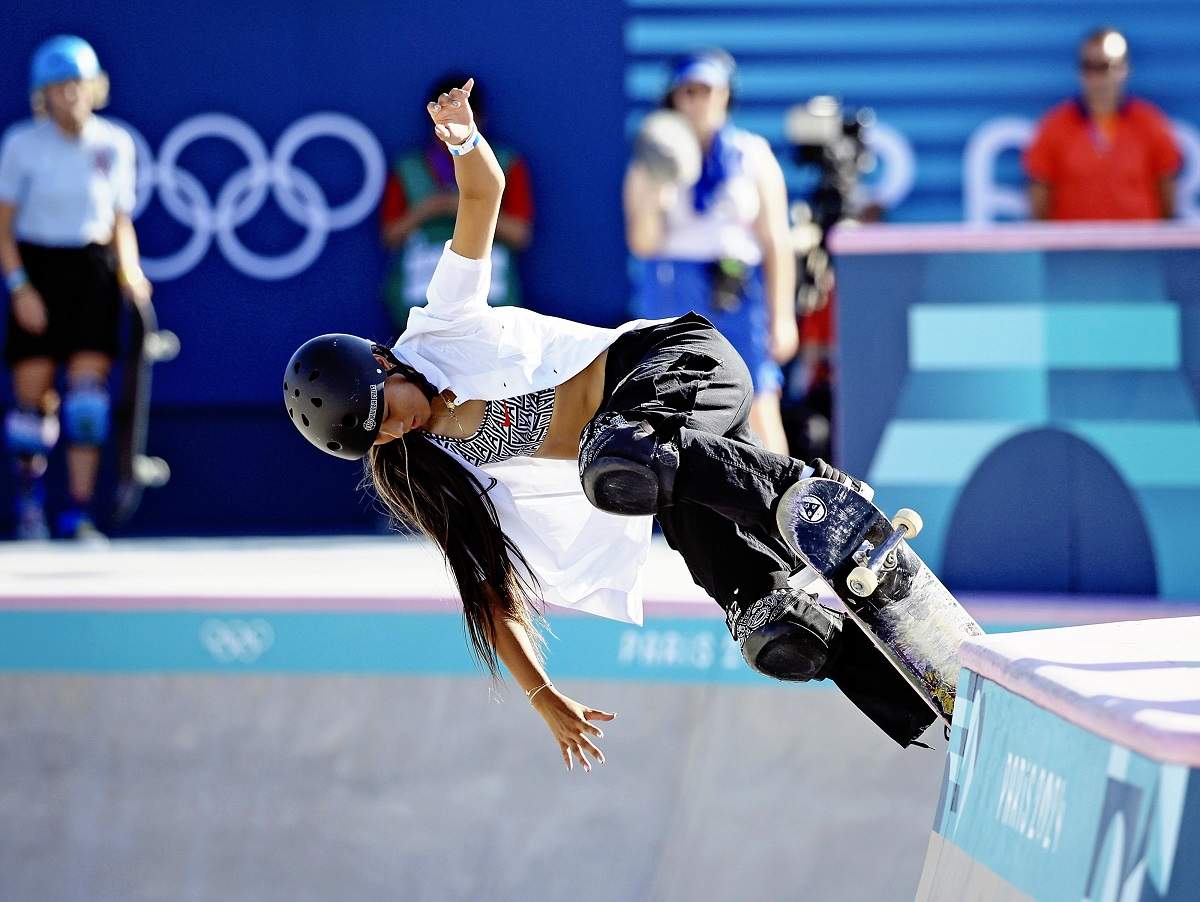
Cocona Hiraki in action during the women’s park skateboarding event at the Paris Olympics
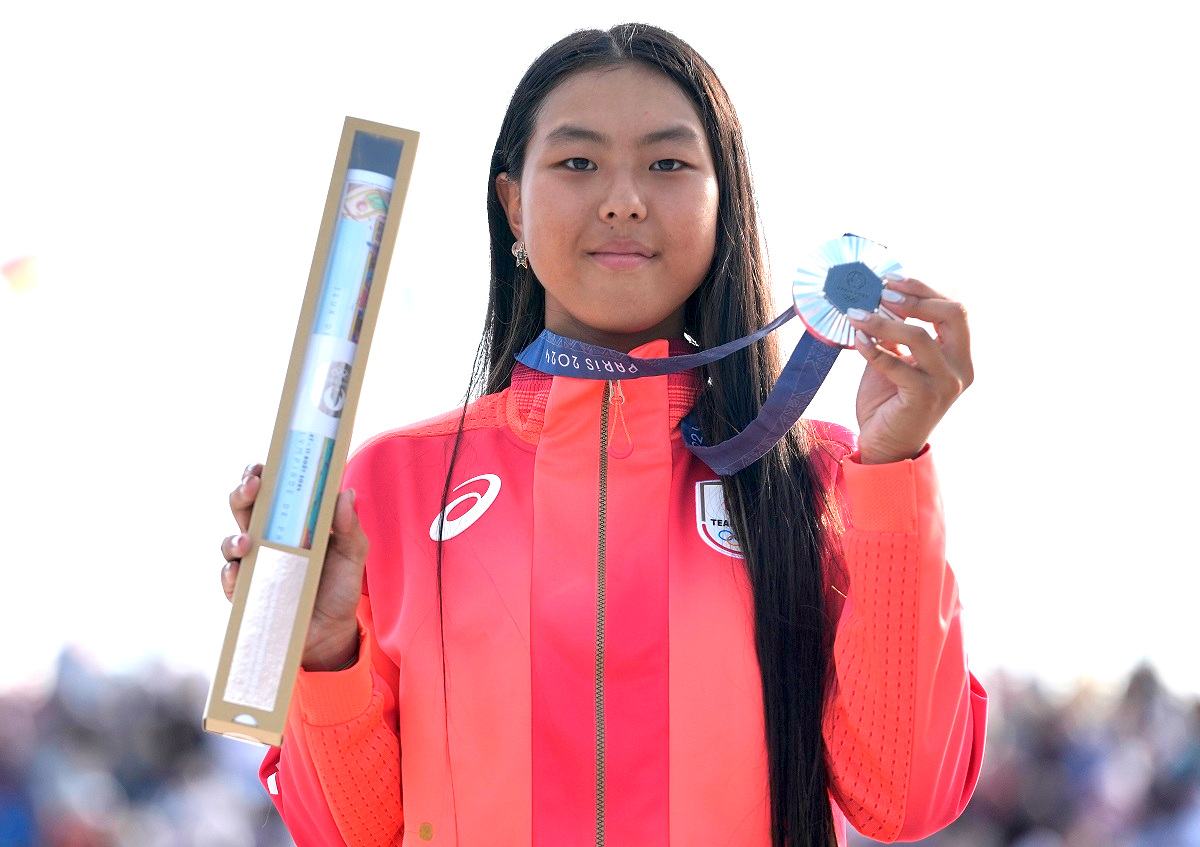
Silver medalist Cocona Hiraki of Japan poses for a photo after the women’s skateboarding park final at the 2024 Summer Olympics, Tuesday, Aug. 6, 2024, in Paris, France.
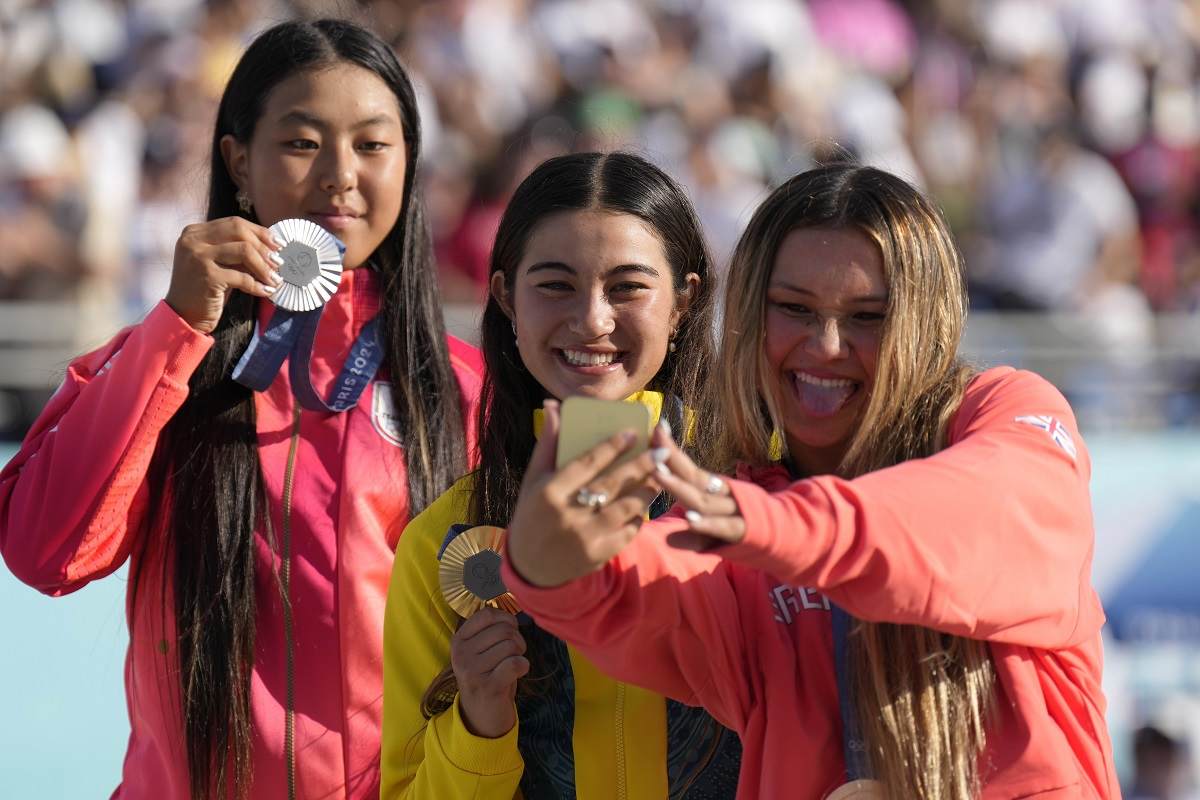
Silver medalist Cocona Hiraki of Japan, left, gold medalist Arisa Trew of Australia and bronze medalist Sky Brown of Great Britain take a selfie after the women’s skateboarding park final at the 2024 Summer Olympics, Tuesday, Aug. 6, 2024, in Paris, France.
17:42 JST, August 7, 2024
PARIS — At 15 years old, Cocona Hiraki won her second consecutive Olympic silver in the women’s park skateboarding event on Tuesday, scoring 92.63 points. Australia’s Arisa Trew won the gold with 93.18 points.
Hinano Kusaki, 16, was eighth with 69.76 points. Tokyo Games gold medalist Sakura Yosozumi, 22, finished 10th in the preliminaries and could not advance to the finals.
“I was able to give everything I wanted and was also able to win a medal,” Hiraki said after receiving her second silver medal Tuesday.
She was 12 years and 11 months old when she bagged her first silver medal at the Tokyo Games in 2021, making her the youngest medalist in Japan’s Olympic history. Now 15, Hiraki was back to the podium with more sophistication.
Hiraki’s signature trick is the nosegrind, in which the truck between the front wheels is used to grind on a ledge. At the finals, Hiraki was in the lead after the first run, using the trick at a difficult corner while skateboarding in the course freely for 45 seconds. Although the second run was unsuccessful, dropping her to third, she increased the difficulty of the tricks to score higher points in the third run.
After the run, she hugged other skateboarders in celebration and said, “I was able to complete the run that I’ve never done all the way through even during practice.”
Since the Tokyo Games, airs and rotations have become the mainstream in the women’s park events. In order to “perform in my own style and achieve the result,” she extended the distance of her grind and increased the number of variations. She had repeatedly and thoroughly practiced on uneven edges and now is able to perform her signature trick anywhere.
Her moves became polished as she desired to “be recognizable as Cocona Hiraki from any angle, and to be seen as cool.”
She recalls participating in the Tokyo Games, thinking “How big a deal are the Olympics?” And she said she thought, “Advancing to the finals and winning a medal were both a miracle.”
Three years on at Paris Games, Hiraki had grown into a skateboarder determined to win a medal, who was persistent about her style and could fascinate spectators with her skateboarding.
Top Articles in Sports
-

Milano Cortina 2026: Figure Skaters Riku Miura, Ryuichi Kihara Pair Win Gold; Dramatic Comeback from 5th Place in SP
-

Milano Cortina 2026: Kokomo Murase Comes Out on Top After Overcoming Obstacles, Aiming for Greater Heights in Competition
-
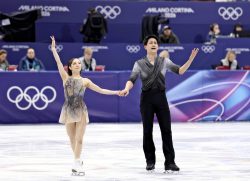
Milano Cortina 2026: Riku Miura, Ryuichi Kihara Clinch Japan’s 1st Gold in Pairs Figure Skating, Rebounding from Disappointing Short Program
-

Milano Cortina 2026: Olympics-Torch Arrives in Co-Host Cortina on Anniversary of 1956 Games
-

Milano Cortina 2026: Japan’s Athletes Arrive in Italy for Milano Cortina Winter Olympics; Other Athletes to Arrive from Now
JN ACCESS RANKING
-

Japan PM Takaichi’s Cabinet Resigns en Masse
-

Japan Institute to Use Domestic Commercial Optical Lattice Clock to Set Japan Standard Time
-

Israeli Ambassador to Japan Speaks about Japan’s Role in the Reconstruction of Gaza
-

Man Infected with Measles Reportedly Dined at Restaurant in Tokyo Station
-

Videos Plagiarized, Reposted with False Subtitles Claiming ‘Ryukyu Belongs to China’; Anti-China False Information Also Posted in Japan



